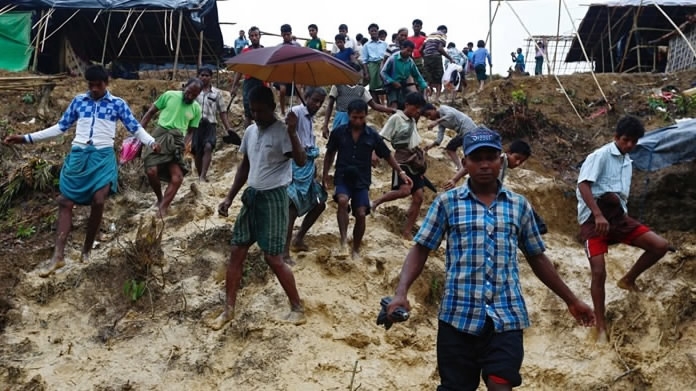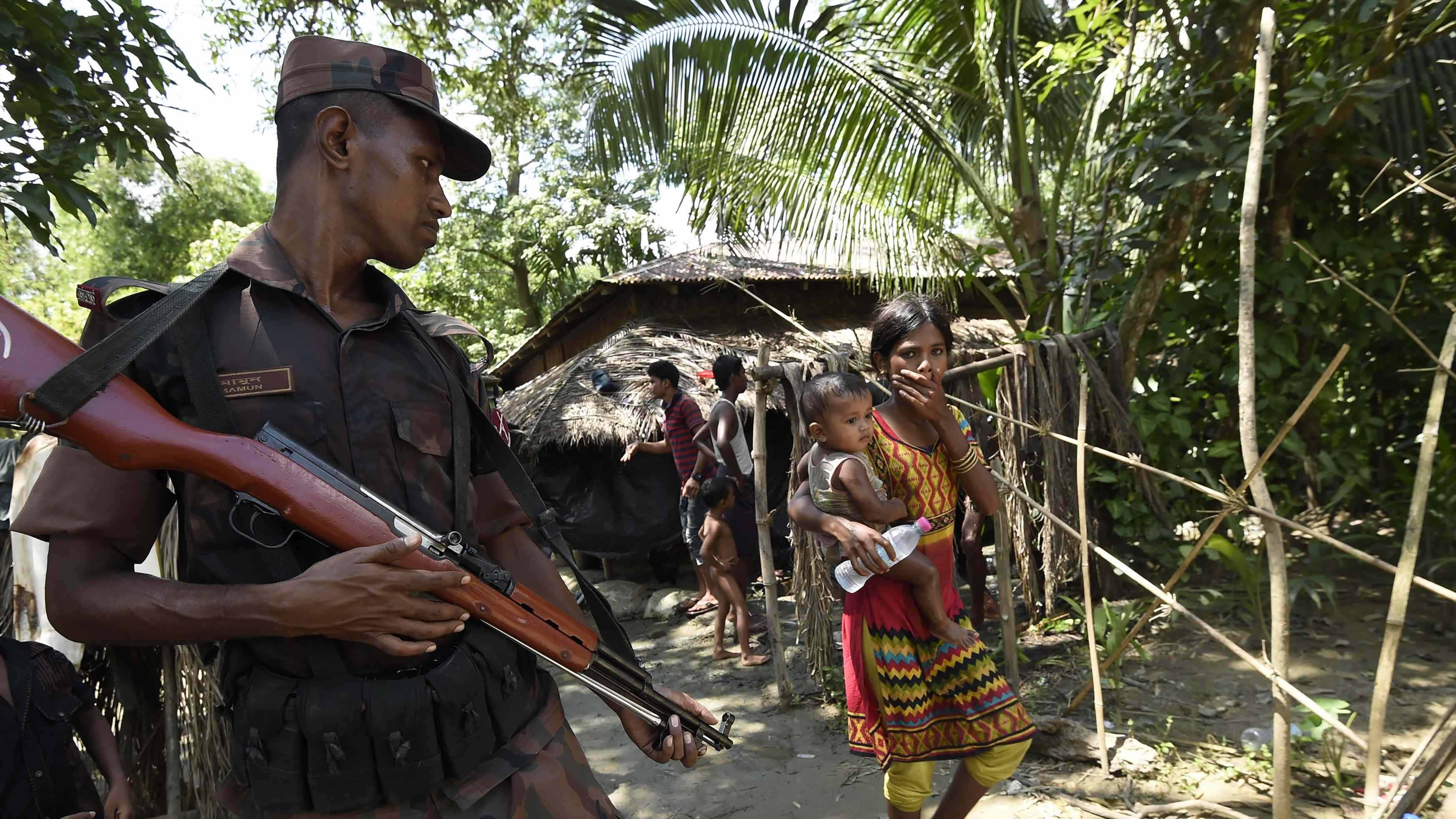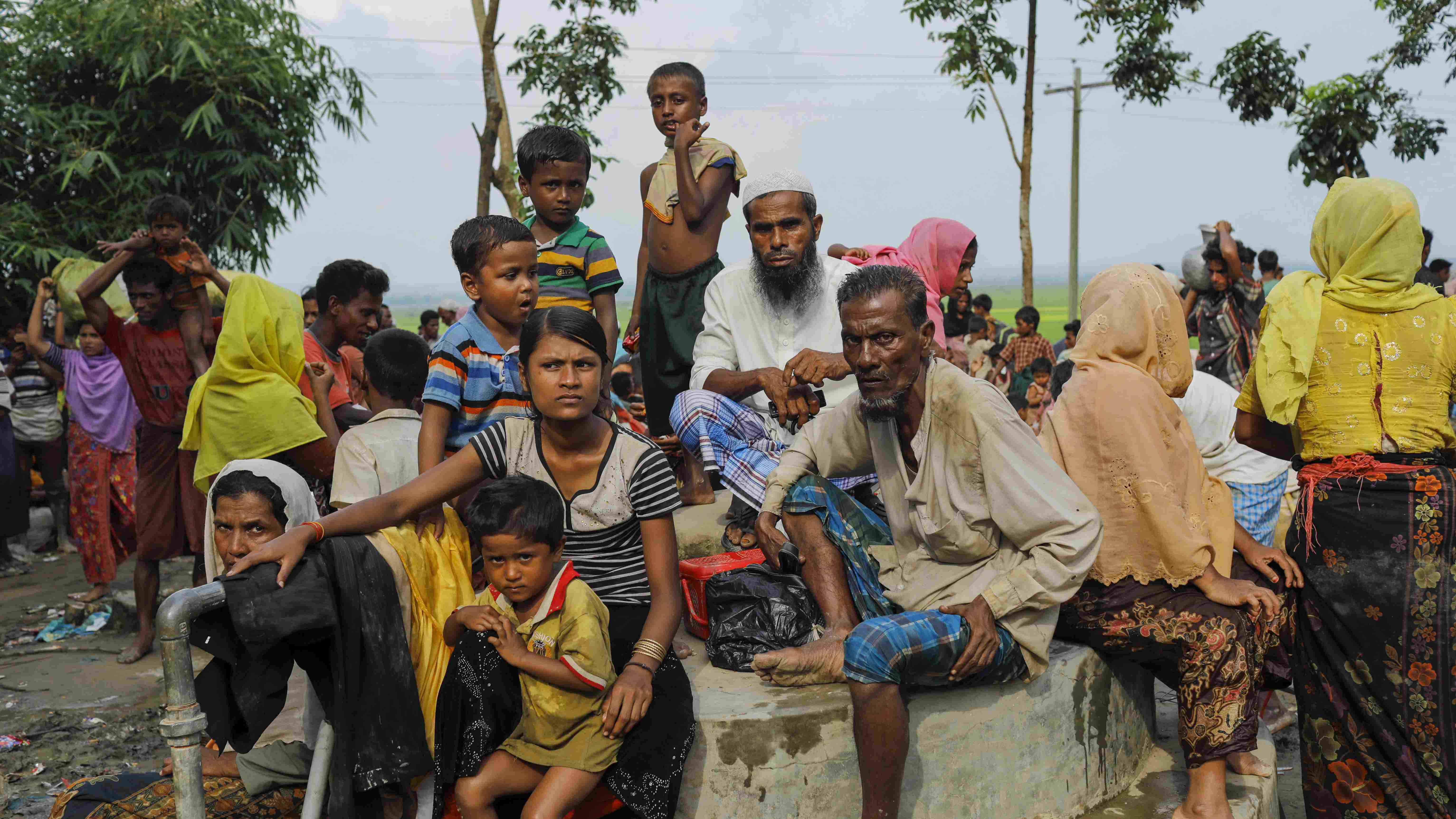
Politics
07:52, 12-Nov-2017
Red Cross warns short-term aid for Rohingya refugees not enough
By Dave Grunebaum

In Myanmar’s Rakhine State, more than half a million Rohingya have been displaced by a military offensive. Some have fled to neighboring Bangladesh, but many have remained on Myanmar’s side of the border. While groups like the Red Cross are doing what they can to help, they are also warning their help has limits.
Scenes of hundreds of thousands of Rohingya streaming into Bangladesh grabbed global headlines. The attention spurred many to action, providing help to those escaping a crisis the United Nations has called a textbook example of ethnic cleansing.
But those who have stayed in Myanmar’s Rakhine State are often much harder to reach.

A Bangladeshi border guard looks at Rohingya refugees at the Jalpatoli refugee camp in the no-man's land area between Myanmar and Bangladesh, near Gumdhum village in Ukhia, September 16, 2017. /AFP Photo
A Bangladeshi border guard looks at Rohingya refugees at the Jalpatoli refugee camp in the no-man's land area between Myanmar and Bangladesh, near Gumdhum village in Ukhia, September 16, 2017. /AFP Photo
"The nature of the terrain it’s very difficult, you have mountains, rivers, wetlands and people are scattered," Red Cross Head of Delegation Fabrizzio Carboni said.
At the Red Cross operations center in Rakhine, about 160 workers handle logistics and aid distribution, giving help to more than 100,000 people so far. Within a week, however, that number is expected to reach 180,000.
"When we come to these remote villages the first thing we bring is people to listen to their problems and what they need," Carboni said. "I mean, there is this isolation of community, this psychological impact of the violence."
The latest round of violence started when Rohingya militants attacked security outposts in late August. Human rights groups accuse the military of retaliating against civilians in a campaign of murder, rape and arson. The military denies these accusations.

Rohingya refugees from Myanmar's Rakhine State take rest at the Khanchon border crossing near the Bangladeshi town of Teknaf, September 5, 2017. /AFP Photo
Rohingya refugees from Myanmar's Rakhine State take rest at the Khanchon border crossing near the Bangladeshi town of Teknaf, September 5, 2017. /AFP Photo
Almost all of the Rohingya — a stateless Muslim minority in Buddhist majority Myanmar — are in Rakhine State. There is little sympathy across the country though, exemplified by large demonstrations showing support for the military.
The amount of distrust between the different groups is only making this crisis more difficult.
The Red Cross says its humanitarian aid is essential now, but adds that its help is not a long-term solution.
"It’s not just a humanitarian responsibility; this is a political responsibility for the people to go back to their normal life," Carboni saidd. "There is obviously a need to reconcile communities to create a political environment which allows people to go back to their normal life."

SITEMAP
Copyright © 2018 CGTN. Beijing ICP prepared NO.16065310-3
Copyright © 2018 CGTN. Beijing ICP prepared NO.16065310-3